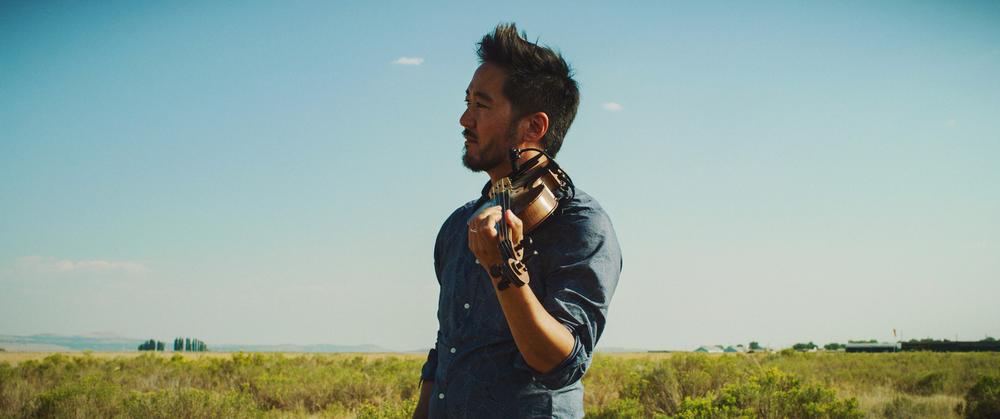Section Branding
Header Content
On 'Omoiyari,' Kishi Bashi Transcends Time — And Politics — With Compassion
Primary Content
Kishi Bashi made a name for himself with the shiny, fantastical indie pop of his first three albums. (The singer and multi-instrumentalist also made a pseudonym for himself: his stage name is a mashup of his first initial – K, for Kaoru – and last name, Ishibashi.)
Ishibashi's newest record Omoiyari (available May 31) takes a more sober turn. From Japanese, "omoiyari" roughly translates as compassion or kindness shown toward others, which stirred in the Athens-based musician after President Trump's administration placed a travel ban on people from specific, predominantly Muslim countries.
“I personally felt uncomfortable as a minority for the first time when all these executive orders were going out," Ishibashi told On Second Thought. "I saw direct parallels to the incarceration."
The ban propelled Ishibashi to another moment in American history: the internment of 120,000 Japanese Americans during World War II. He wrote music for Omoiyari while doing field research at the sites of former internment camps around the U.S.
"In these camps, you were discouraged from speaking Japanese ... Japanese books were banned unless they were Bibles," Ishibashi said. "Being forced to kind of hide your own culture and your origin, that’s extremely painful for me – because I love speaking Japanese, I love the culture, I love the food, and to suppress something that’s a part of you is ... extremely painful."
Omoiyari, which is also the title of a songfilm Ishibashi has planned for next year, meditates on the pain and feelings of hopelessness incarcerees felt, but also on universal themes like love, loss and desire. The album also channels the musician's own hopefulness for a country that in the future will be more inclusive and compassionate.
"One of the things that I realized as an artist is that my job is to provide healing and not discord, and I think that's really my impetus for making this album," Ishibashi told On Second Thought. "I feel invigorated for finding that purpose."
Interview Highlights
On checking his privilege
In the beginning, I was kind of a naive musician and I didn't really understand what the problem was ... but then I started to realize there's a fundamental problem in this country that a lot of people of privilege, myself included ... don't understand. I didn't understand my privilege. That's the kind of thing that really changed over the course of the year as I started filming and making this album.
On his song "Summer of '42"
Bashi: "Summer of '42" is about two people who fall in love in an incarceration camp. And then, ultimately, one goes off to war, comes back, and she's gone ... Is that a love story? I guess. But it's the kind of thing that probably happened a lot. And it's love, loss and the desire to try to connect.
On finding hope in future generations
[My daughter] gets it. You know, kids, really even at that age, you think they don't know anything – they're just Snapchatting or whatever – but they're full of knowledge and full of ideas. To know that her generation is more tolerant actually ... gives me a lot of encouragement.
On bridging political divides
I don't try and be political. The movie and this whole message is about inclusivity and understanding differences. I try my best not to mention our president... most of the time. I like to feel that we're all on the same page here in America – that, you know, we all want the same thing. We want a safe home. We want a job and we want to be respected.
Get in touch with us.
Twitter: @OSTTalk
Facebook: OnSecondThought
Email: OnSecondThought@gpb.org
Phone: 404-500-9457


